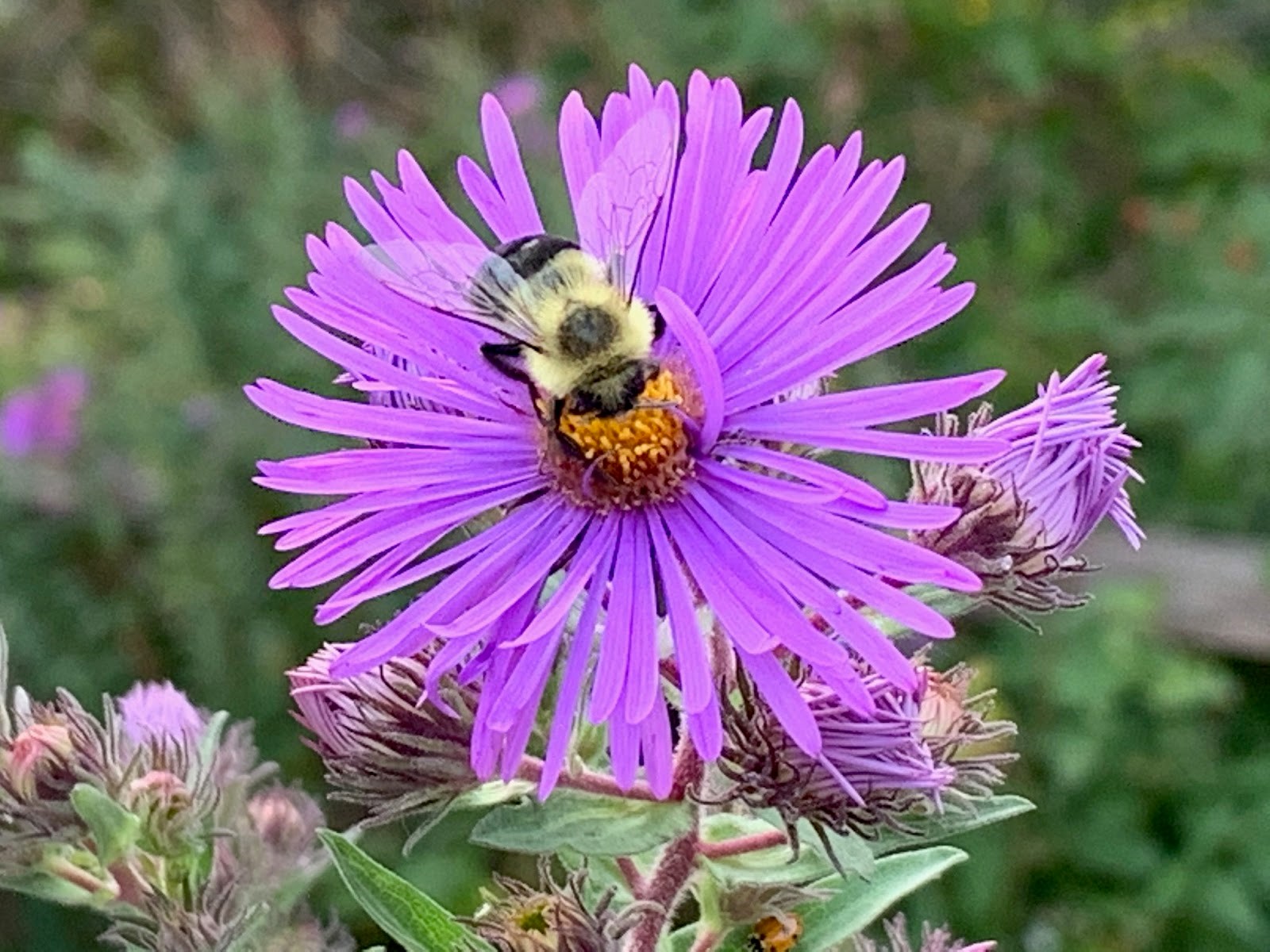Connected While Apart
Food for Thought

Bees — the heavy lifters in the great congregation of pollinators
Dear Mayfield,
When I was a child, I was allergic to bees. Nobody knew that until the first time I was stung. And that first time and on several other occasions I was not stung by a single bee. I managed to collide way too often with nests of bees, for instance ground nests and nests in downed trees. When I was stung, I was stung repeatedly. And each time the bees and I tangled, my body’s response grew in intensity. Finally, when I was in junior high, my pediatrician, who was still making house calls at that point, told my mother that the next time I was stung I would be in the emergency room and hopefully would arrive in time.
There was a brand new treatment then for those with bee allergies. It was called a desensitization program. There had just been a picture of a physician and an article about it at the top of a page in one of the weekly news magazines. My mother offered me a choice. I could undergo the treatment and continue all my outdoor activities, many of them through Girl Scouts. Or I could forgo the treatment for an inside life. Over the course of the next two years, weekly, bi-weekly, and then monthly shots were administered in my arm with an ever-changing potency of bee venom in them. When It was all said and done, it was declared a success. To this day, I get a larger welt or bump than others do if a bug bites or stings, but none of them threaten to send me to the hospital.
I don’t remember any particular trauma associated with the desensitization program. I walked across town after school on the appointed afternoons and got my shots. Fortunately, I have never had another encounter with a nest of bees. Desensitized or not, those encounters were painful. Fortunately, my history with bees never turned to hostility and never hampered my interest in all that pollinating.
I met up with this bee and aster back in late September. As I watched the bee, the term essential worker flashed through my head and heart. Essential worker is a term I didn’t hear or use before the pandemic slammed into our lives late winter 2020. Growth in attentiveness and gratitude in the direction of essential workers has happened for some of us since then. In that September moment, I saw this specific pollinator and all of the other pollinators as essential workers in our lives. Without them, our food sources would be greatly diminished. For me, pollinators are not only essential workers, they are also an amazing model for faithful and fruitful lives. They are able to go about getting what they need, all that nectar, while they disperse pollen widely, while they serve the food requirements of other species. That opportunity is an essential, everyday miracle from the wisdom of the earth. The pollinators can teach us that it is possible to find enough of what our lives must have at the same time that we can extend resources for others’ well being. It isn’t only about us. It isn’t either/or, win/lose. It is both/and. Imagine re-envisioning the lives of individuals, communities, and entire counties, countries, and continents from such a both/and perspective. What if we chose strategies that don’t leave us wanting and also don’t leave us disconnected from the welfare of other human beings and other species? One bee on one aster — plenty of food for thought!
Peace, Martha

